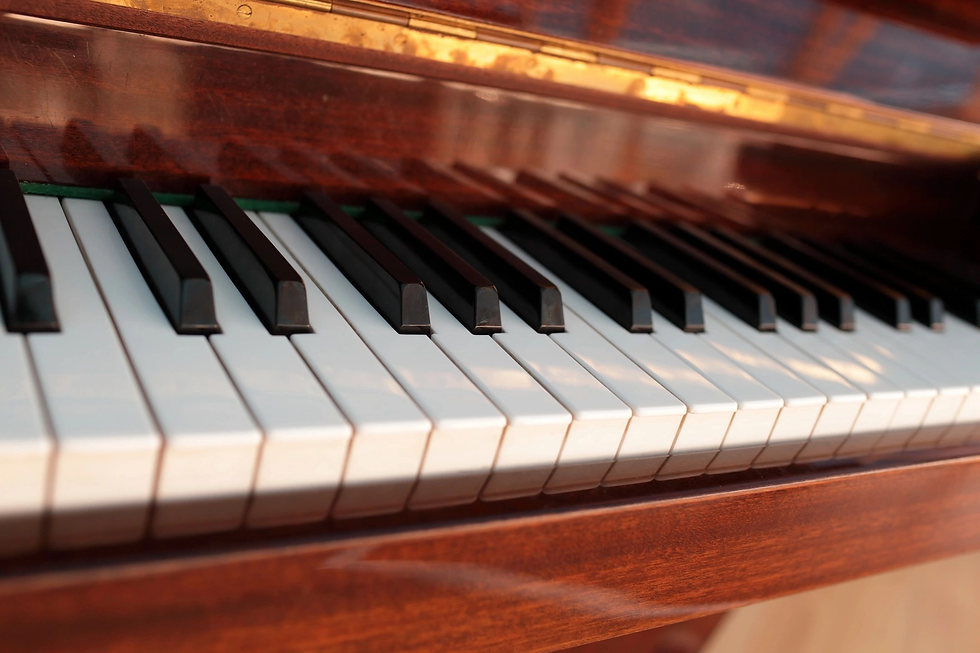Instrument Maintenance: How to Keep Your Piano in Optimum Condition.
- Crossed Melodies

- Jul 8, 2024
- 2 min read
Updated: Jul 9, 2024
Keeping a piano in top condition not only ensures greater longevity of the instrument but also ensures that it produces the best possible sound. In this article, we'll guide you through the essential steps for caring for your piano, from basic tools to advanced maintenance techniques, as well as troubleshooting common problems. This is a guide to know How to Keep Your Piano in Optimum Condition.
Introduction to Piano Maintenance:
The piano is a complex instrument that requires regular maintenance to maintain its sound quality and performance. Unlike other instruments, a piano has thousands of parts that must work in harmony. Therefore, a good knowledge of piano care is vital for any pianist, whether amateur or professional.
Essential Piano Care Tools and Supplies:
Before you begin your piano maintenance, it is important to have the right tools and supplies on hand. Essentials include a microfiber cloth for dusting, a humidifier to maintain proper humidity and piano-specific cleaning products. In addition, having a trusted professional tuner is crucial to keeping your piano tuned regularly.
Routine Piano Maintenance Practices:
Routine piano maintenance includes simple but important tasks that should be performed regularly. Dusting the keyboard and piano surface with a soft cloth helps prevent the accumulation of dirt. Keeping the piano away from windows and heat sources will prevent damage caused by changes in temperature and humidity. It is also advisable to tune the piano at least twice a year to ensure that it remains in proper pitch.
Advanced Piano Maintenance Techniques:
For those who wish to delve deeper into the maintenance of their piano, there are advanced techniques that can help prolong the life of the instrument. These include piano action regulation, which involves adjusting the internal mechanics to ensure even key response, and voicing, which involves modifying the hammers to achieve a desired sound. These techniques usually require the help of a skilled technician but knowing them can be useful to discuss with the professional.
Troubleshooting Common Piano Problems:
Despite care, pianos can have common problems such as sticky keys, out-of-tune sounds, or pedals that don't work properly. Identifying the cause of these problems is the first step to fixing them. Often, sticky keys can be fixed with proper cleaning while tuning and pedal problems usually require the intervention of a technician. Knowing about these problems will allow you to keep your piano in top condition and prevent further damage.
Closing:
Regular and proper maintenance of your piano is essential to ensure its longevity and sound quality. From routine tasks to advanced techniques and troubleshooting common problems, every aspect of piano care contributes to preserving this valuable instrument. Dedicating time and attention to the maintenance of your piano will not only enhance your musical experience but also protect your investment in the long run - take care of your piano and enjoy its melodious sound for many years to come!
Crossed Melodies 2024.








Comments